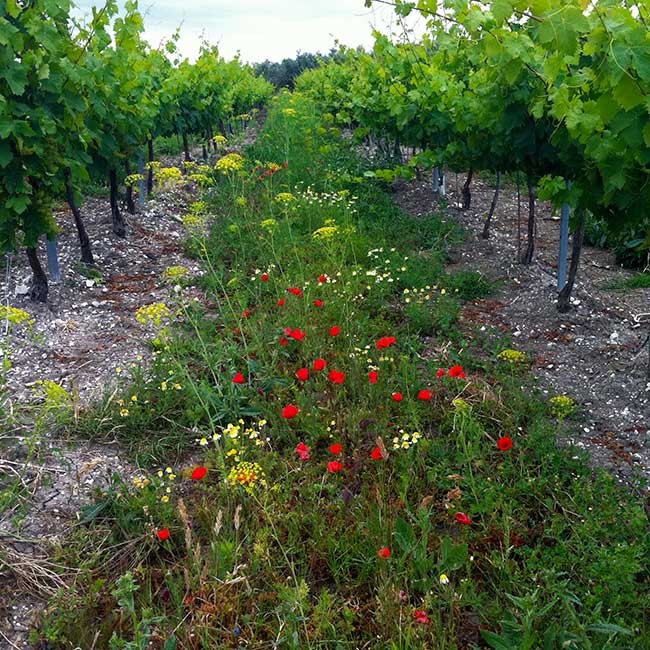
Subscribe to our newsletter
The Growing Market for Organic and Sustainable Wines
Why Investors Should Pay Attention
12/5/20244 min read


The global wine industry is undergoing a transformation, driven by a growing demand for products that align with ethical and environmental values. As consumers become increasingly conscious of sustainability, organic and biodynamic wines are taking centre stage. For collectors and investors, this shift represents a unique opportunity to tap into a growing market that promises both financial returns and positive environmental impact.
In this article, we explore the rise of organic and sustainable wines, their growing appeal to investors, and how this trend is shaping the future of the fine wine industry.
Understanding Organic and Sustainable Wines
Before diving into the investment potential, it’s important to define what we mean by organic and sustainable wines. Organic wines are produced without synthetic pesticides, herbicides, or fertilisers, adhering to strict regulations that ensure the health of the soil and ecosystem. Biodynamic wines go even further, following holistic agricultural practices based on the lunar calendar and integrating the vineyard into its natural surroundings.
Sustainable winemaking, meanwhile, focuses on minimising the environmental impact at every stage of production, from vineyard management to bottling. These wines may not always carry organic certification, but they are produced with a commitment to resource conservation, reducing carbon footprints, and maintaining biodiversity.
Why Sustainable Wines Are Growing in Popularity
The rise of sustainable and organic wines is not just a fleeting trend; it’s part of a broader consumer movement towards ethical consumption. Today’s wine buyers, particularly younger consumers, are looking for products that reflect their values. This growing awareness is pushing more wineries to adopt sustainable practices, knowing that environmental responsibility is increasingly important to their customers.
For investors, this consumer-driven shift offers exciting opportunities. Wines that are sustainably produced often carry premium pricing, and as demand for these products continues to rise, their investment value is poised to grow.
The Influence of the Millennial and Gen Z Markets
Millennials and Gen Z consumers are playing a significant role in driving the demand for sustainable products. They are more likely to prioritise ethical considerations when making purchasing decisions, and this includes wine. These generations are attracted to wines that tell a story—wines that are not only high-quality but also produced with care for the planet. As their purchasing power increases, so too will the market for sustainable wines.
Investment Potential of Organic and Sustainable Wines
The financial potential of organic and sustainable wines is becoming increasingly clear. Several key factors make these wines particularly attractive for investors:
Rising Consumer Demand: As mentioned earlier, the demand for sustainably produced wines is growing rapidly. This increased interest is driving up prices for high-quality organic and biodynamic wines, making them valuable assets for investors looking to capitalise on market trends.
Scarcity and Exclusivity: Many organic and biodynamic wineries produce limited quantities due to the rigorous farming methods involved. This scarcity enhances the exclusivity of their wines, making them highly sought after by collectors and driving up prices in the secondary market.
Long-Term Value: Organic and biodynamic wines often age exceptionally well due to the careful farming and winemaking techniques employed. This longevity adds to their investment appeal, as wines that improve with time can fetch significantly higher prices after years of cellaring.
Leading Organic and Sustainable Producers
As more wineries embrace sustainable practices, several key producers are setting the standard for quality and investment potential. Here are a few to watch:
1. Domaine de la Romanée-Conti (Burgundy, France)
One of the most prestigious wineries in the world, Domaine de la Romanée-Conti has fully embraced biodynamic practices. Their rare and limited wines are already among the most valuable in the market, and their sustainable approach only enhances their appeal.
2. Château Pontet-Canet (Bordeaux, France)
A leader in biodynamic farming in Bordeaux, Château Pontet-Canet has seen its wines gain recognition for both their quality and sustainability. Investors have noticed the strong upward trend in the value of their wines, making this château a must-watch for fine wine investors.
3. Felton Road (Central Otago, New Zealand)
Felton Road has become one of New Zealand's most prominent producers, known for its organic and biodynamic approach to winemaking. Their Pinot Noirs are particularly revered, with strong potential for long-term investment growth.
The Challenges of Investing in Sustainable Wines
While the market for organic and sustainable wines offers exciting opportunities, there are also challenges to consider. These wines are often produced in smaller quantities, which can make them more difficult to acquire. Additionally, the organic certification process can be lengthy and expensive, meaning not all sustainable wines carry the organic label, which may affect their perception in the market.
However, for investors willing to navigate these challenges, the rewards can be significant. By focusing on high-quality producers with a proven track record, investors can build a portfolio of sustainable wines that offers both strong returns and a positive environmental impact.
The Future of Sustainable Wine Investment
As sustainability becomes a central focus for both producers and consumers, the future of fine wine investment is likely to see an increasing emphasis on organic and biodynamic wines. This shift is more than just a market trend; it reflects a broader movement towards responsible and ethical consumption. For investors, this means that wines produced with sustainability in mind are not only attractive from a moral standpoint but also poised for strong financial performance.
Investors who recognise the growing demand for sustainable products and act early will be well-positioned to capitalise on this expanding market. The combination of ethical production, consumer demand, and long-term value makes organic and biodynamic wines a compelling addition to any investment portfolio.
Conclusion: Investing in Wines that Reflect Your Values
Organic and sustainable wines represent the intersection of luxury, quality, and responsibility. As the wine industry continues to evolve, these wines are gaining prominence not only for their craftsmanship but also for their ethical and environmental commitment. For investors, this trend presents a unique opportunity to support sustainability while benefiting from the rising value of these exceptional wines.
